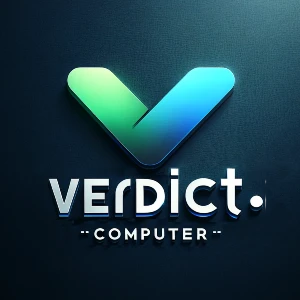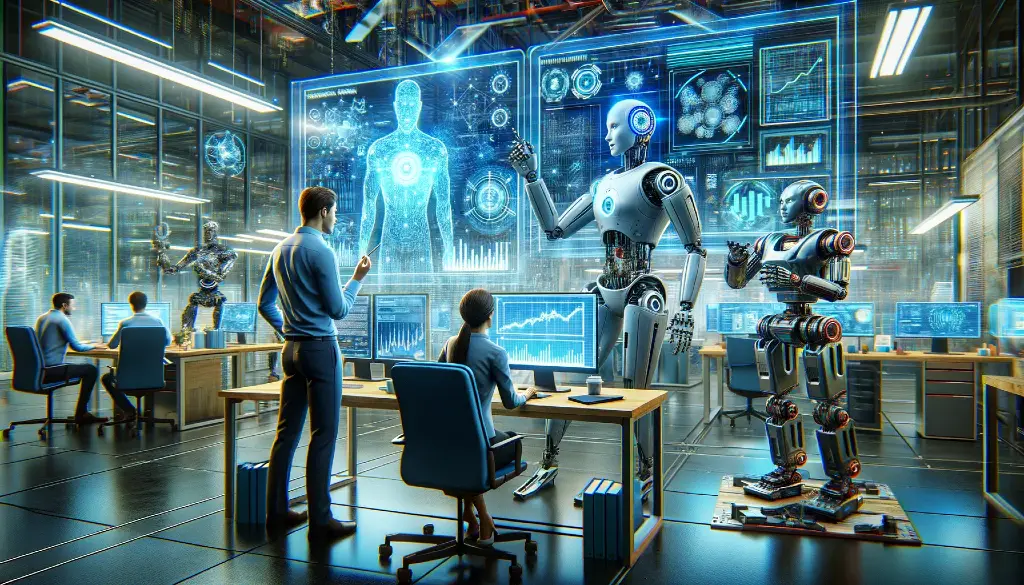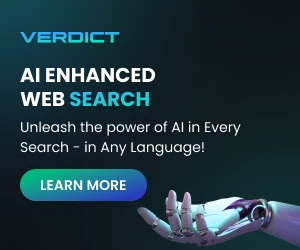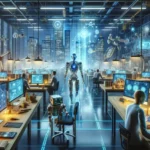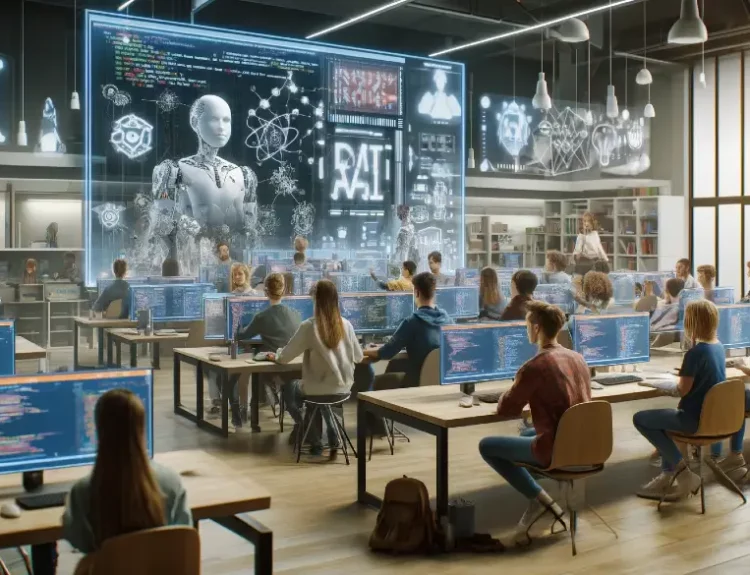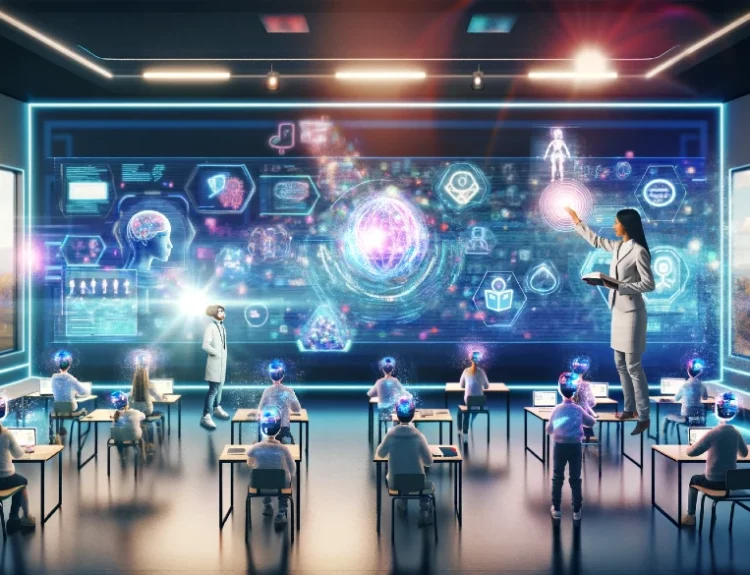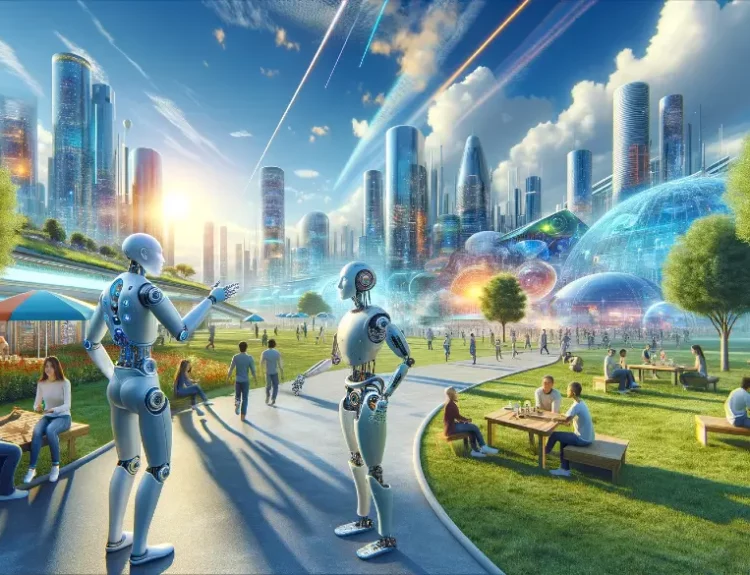Introduction
Imagine a world where your computer co-worker analyzes complex data sets at lightning speed, while your robot teammate tirelessly assembles intricate machinery. No, this isn’t science fiction – it’s the rapidly evolving reality of Artificial Intelligence (AI) in the workplace.
AI is no longer confined to the realm of futuristic movies. It’s transforming industries from healthcare to finance, and its impact on computer science careers is undeniable. The demand for AI-skilled professionals is skyrocketing, creating a wave of exciting opportunities for those ready to ride the wave.
Intrigued? If you’re a computer science student or professional curious about the future of AI in your field, then keep reading! This blog will be your guide to navigating the world of AI careers, exploring the hottest job opportunities, essential skillsets, and the ever-evolving job market landscape. Buckle up and get ready to discover how AI can elevate your computer science career to new heights!
AI in Computer Science: A World of Opportunities
The intersection of Artificial Intelligence (AI) and computer science is a breeding ground for exciting career possibilities. Forget the stereotypical image of a lone programmer hunched over code. AI-powered computer science careers are collaborative, dynamic, and push the boundaries of what technology can achieve. Here’s a glimpse into some of the most sought-after AI-related job opportunities:
- Machine Learning Engineer: As the architects of intelligent systems, Machine Learning Engineers design, build, and deploy machine learning models. They utilize complex algorithms to analyze vast datasets and train AI systems to perform specific tasks, like facial recognition or fraud detection.
- Data Scientist: The data whisperers of the AI world, Data Scientists delve into the depths of information, cleaning, analyzing, and interpreting vast datasets. They play a crucial role in extracting valuable insights that fuel the development and refinement of AI models.
- Natural Language Processing Engineer (NLP Engineer): Can you imagine having a computer understand and respond to human language like a friend? NLP Engineers make this a reality. They specialize in developing AI systems that can process and generate human language, enabling applications like chatbots and virtual assistants.
- Robotics Engineer: The bridge between the virtual and physical worlds, Robotics Engineers design and build robots capable of interacting with the real environment. Their expertise in AI, mechanics, and control systems allows them to create intelligent machines that can automate tasks, perform intricate surgeries, or even explore uncharted territories.
- Computer Vision Engineer: See the world through the eyes of AI! Computer Vision Engineers develop algorithms that enable machines to “see” and interpret visual data like images and videos. This field paves the way for applications like self-driving cars, medical image analysis, and automated visual inspection systems.
These are just a few examples, and the list of AI job opportunities in computer science continues to grow. This explosion in demand is fueled by the increasing adoption of AI across industries, creating a vibrant job market for computer science graduates equipped with the right skillset.
Essential AI Skills for a Thriving Career
The key to unlocking a successful AI career path in computer science lies in mastering a unique blend of technical and soft skills. Here’s what it takes to thrive in this ever-evolving field:
Technical Skills:
- Programming Languages: Proficiency in languages like Python, R, and Java is essential for building and manipulating AI models. These languages provide the foundation for interacting with libraries and frameworks specifically designed for AI development.
- Machine Learning Algorithms: Understanding the core concepts of machine learning, including supervised learning, unsupervised learning, and deep learning algorithms, equips you to select and implement the most appropriate technique for a given problem.
- Data Analysis: The ability to clean, analyze, and interpret vast datasets is paramount. Statistical analysis skills and familiarity with data visualization tools like Tableau will help you extract meaningful insights that fuel AI development.
- Cloud Computing: As AI models often require immense computational power, understanding cloud platforms like Google Cloud Platform (GCP) or Amazon Web Services (AWS) is crucial for deploying and scaling these systems effectively.
Soft Skills:
- Critical Thinking and Problem-Solving: AI problems are rarely straightforward. You’ll need strong critical thinking skills to break down complex challenges, identify patterns, and develop effective solutions using AI techniques.
- Communication: The ability to clearly communicate complex technical concepts to both technical and non-technical audiences is essential. You’ll be collaborating with various stakeholders, so clear and concise communication fosters a successful AI project.
- Lifelong Learning: The field of AI is constantly evolving. A passion for continuous learning and staying updated with the latest advancements will ensure you remain at the forefront of this dynamic field.
The Future of AI Jobs: Embracing Constant Evolution
The future of AI jobs in computer science is brimming with exciting possibilities. Here’s a glimpse into what’s on the horizon:
- Rise of Explainable AI (XAI): As AI systems become increasingly complex, ensuring their transparency and explainability will become crucial. XAI techniques will allow us to understand how AI models arrive at decisions, fostering trust and mitigating potential biases.
- Ethical Considerations in AI: AI development and deployment must be guided by ethical principles. The future holds an increased focus on fairness, accountability, and transparency in AI systems, making expertise in these areas a valuable asset for AI professionals.
- Evolving Job Landscape: While AI will undoubtedly automate certain tasks, it’s also creating a new wave of jobs. The focus will shift towards human-AI collaboration, requiring computer science professionals adept at working alongside intelligent systems.
The AI job market outlook remains positive, with a projected demand for skilled professionals who can bridge the gap between cutting-edge technology and real-world applications. So, the future of AI jobs isn’t about job replacement, but rather job transformation, offering exciting new opportunities for those with the right skillset and a growth mindset.
Conclusion
The world of AI in computer science careers is a dynamic and ever-evolving landscape. This blog has hopefully provided a roadmap to navigate this exciting field, highlighting the vast opportunities, essential skillsets, and the ever-changing job market outlook.
AI has the potential to revolutionize every aspect of our lives, and computer science graduates with the right skillset are poised to be at the forefront of this transformation. So, if you’re passionate about technology, eager to solve complex challenges, and excited to be part of the future, then a career in AI might be the perfect path for you.
Embrace the power of AI, hone your skills, and join the journey towards a future where humans and intelligent machines collaborate to create a better world.
Ready to take the first step? Don’t just stand on the sidelines – join the AI revolution with Verdict! Here at Verdict, we’re not just building another AI platform; we’re crafting a future where Artificial Intelligence and Artificial General Intelligence (AGI) evolve through real-world interactions and the collective wisdom of our community.
Every search, every conversation, every shared result on Verdict contributes to building an AI that understands and grows alongside you. By participating in Verdict, you’re not just using a platform, you’re laying a brick in the foundation of a future where AI reflects our diversity, learns from our experiences, and expands with our collective knowledge.
Want to be part of something groundbreaking?
Join Verdict’s vibrant community and contribute to shaping the future of AI. Use our platform to explore your AI interests, experiment with different techniques, and share your insights. Help us build an AI that is truly human-centric and reflects the richness of our collective experience. Together, let’s build the future of AI, one interaction at a time!
